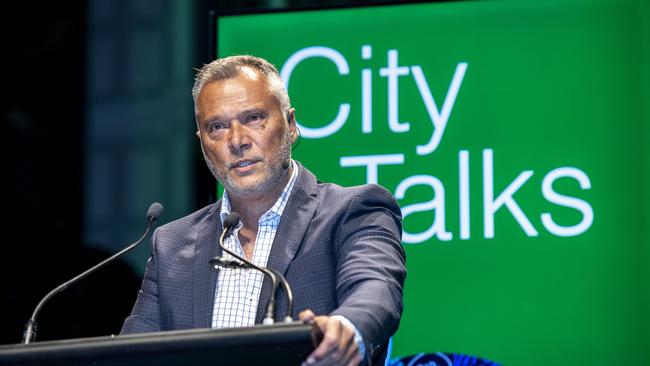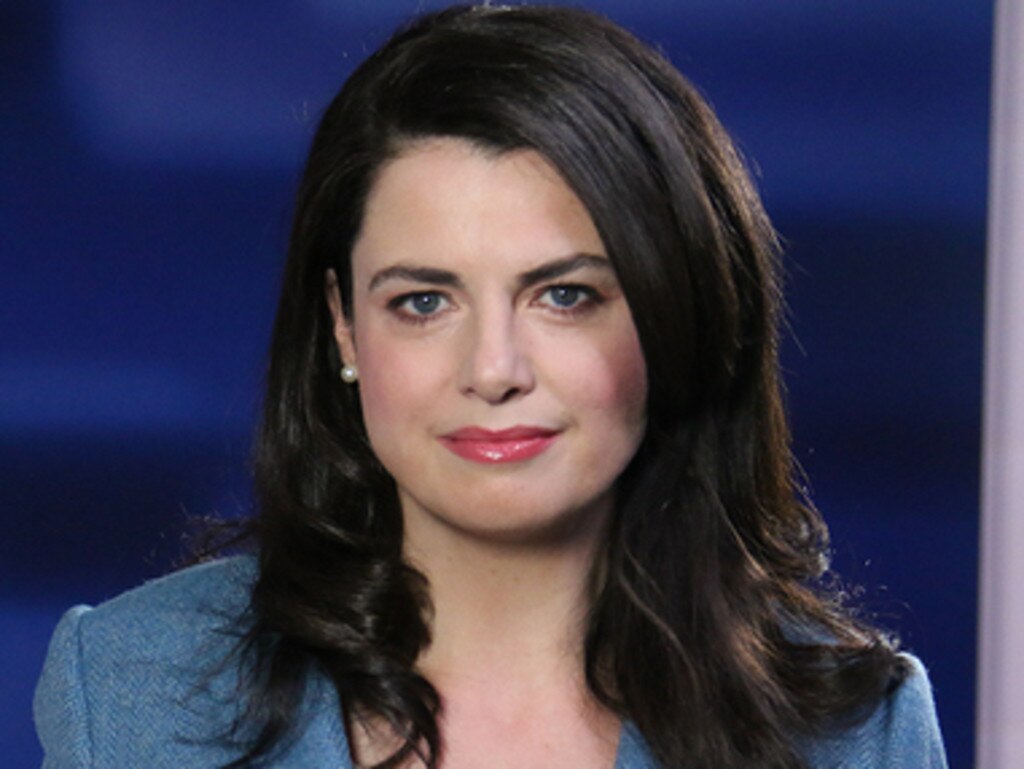Deconstructing the left’s ‘constructive’ view of journalism
Over four decades Grant established a reputation as a hardworking reporter with a deserved reputation for credibility. He’s set for a considerable career change.

In Victoria, Grant will become the inaugural director of the Constructive Institute Asia Pacific at Monash University’s faculty of arts. In Denmark, he will work at the Constructive Institute’s headquarters at Aarhus University.
In four decades of journalism in Australia and overseas, Grant established a reputation as a hardworking and hard-hitting reporter with a deserved reputation for credibility. In his life post-journalism, this will be a considerable career change.
As its website explains, the Constructive Institute promotes constructive journalism. It is defined as “an editorial approach that goes beyond reporting with the ‘if it bleeds it leads’ culture so we get the full story, not just half the picture; the three pillars – solutions, nuance and democratic conversation – are the foundation of constructive journalism practice”.
The powers that be at the Constructive Institute are opposed to what they describe as increasing the “sensationalism and negativity bias of the news media today”. The institute’s vision is to “reinstate trust in the idea that shared facts, shared knowledge and shared discussions are the pillars on which our communication is balanced”. It regards “the democratic function of journalism as a feedback mechanism that helps society self-correct”.
This all sounds great, worthy indeed. But what does it all mean? After all, much news is sensational. How else to explain, say, British prime minister Neville Chamberlain’s declaration of war following Adolf Hitler’s decision that Germany would invade Poland in September 1939?
As to negativity bias – well, some news is negative. The crash of a commercial airliner full of families, for example. There is nothing positive about such an event – but it would be news.
The Constructive Institute’s account of constructive journalism does not include the name of a person or place. It is as vague as that. Consequently, it fails to include an example of any free, or relatively free, society that has operated on the basis of “shared facts” and “shared knowledge”. Any such nation would be a dictatorship or a democratic society replete with boredom.
The Constructive Institute’s website provides a non-specific example of what is entailed in its ideal type of constructive journalism. It describes the proper focus of journalism with respect to three categories. In the area of Breaking News, the reaction is “drama”. Move to Investigative Journalism, and it’s “crooks and victims”. But with Constructive Journalism it’s “solutions and best practice”.
Imagine a serial rapist/murderer is raping and killing on the streets of, say, Aarhus or Melbourne. It would seem that the proper journalism – that is, constructive journalism – would downplay or ignore the drama, downplay the crimes of the murderer and the suffering of all victims and look for solutions and best practice.
To most of the good people of Denmark and Australia, best practice would be to investigate the crimes, arrest the perpetrator, look after the victims and send the alleged offender to trial. But this does not fit the Constructive Institute’s three-pillars approach.
And then there is the Constructive Institute’s mission. It regards the “democratic function of journalism as a feedback mechanism that helps society self-correct”. Self-correct from what? It does not say. But the phrase suggests that this is another university-based entity that is alienated from the society in which it operates from a left-wing perspective.
It’s much the same in Australia. On Tuesday, Monash University issued a statement in which arts faculty dean Katie Stevenson, “welcomed Professor Grant’s appointment”. She declared this was part of the university’s “wider agenda to address one of the key problems of the modern age: tackling misinformation and disinformation in a radically transformed media environment”.
After reading the turgid statements of the Constructive Institute, it’s unlikely its approved print or online newspapers would survive in a commercial market. The fact is democratic societies, and the media that operates in them, do not require the protection of self-important and essentially anonymous university-based operatives. Moreover, misinformation and even disinformation is often in the eye of the beholder.
The Canberra Writers Festival took place last weekend. Like the ABC, it was essentially a conservative-free zone where essentially everyone agreed on everything. In the non-fiction area, I could not identify one political conservative who was a speaker or panellist. In short, it was a typical taxpayer-funded Australian literary festival.
Grant, who presented the ABC Q+A program before stepping down following racial abuse he received on social media, spoke at the CWF and criticised the program. He told the audience: “You go on Q+A and the first thing you do is you introduce a panel that have more often than not been picked because they have conflict, rather than seeking connection.”
That’s not the essential problem with Q+A. There’s nothing wrong with considered verbal or written conflict. The ABC’s The Drum decided to go down the path of kinder/gentler television some years ago and is now mostly incredibly boring. And it’s often a conservative-free zone.
The problem with Q+A is that its panels invariably pit a political conservative against four other leftist or left-of-centre types. And then there is the usual baying leftist mob in the audience. No wonder the program has lost so many former viewers.
In his 1962 book In Defence of Politics, British social democratic political philosopher Bernard Crick wrote that modern democracy is about the resolution of conflict. He argued against the proclamation of ideology and for debate and discussion between pragmatists of the centre left and the centre right.
In democratic societies, there are few 100 per cent obvious decisions. Consequently, politics is about agreeing to agree to disagree. In such an environment, there will sometimes be contesting opinions and arguments about what are “facts”. It’s called debate and discussion and, so far, it has worked out well. Whereas those who promote what they regard as constructive journalism sound somewhat elitist.








So, it’s a media farewell to Stan Grant, the talented broadcaster and fine journalist whom The Australian reported on Wednesday has quit the ABC. He will remain based in Sydney but will spend time in Melbourne and Aarhus, Denmark.